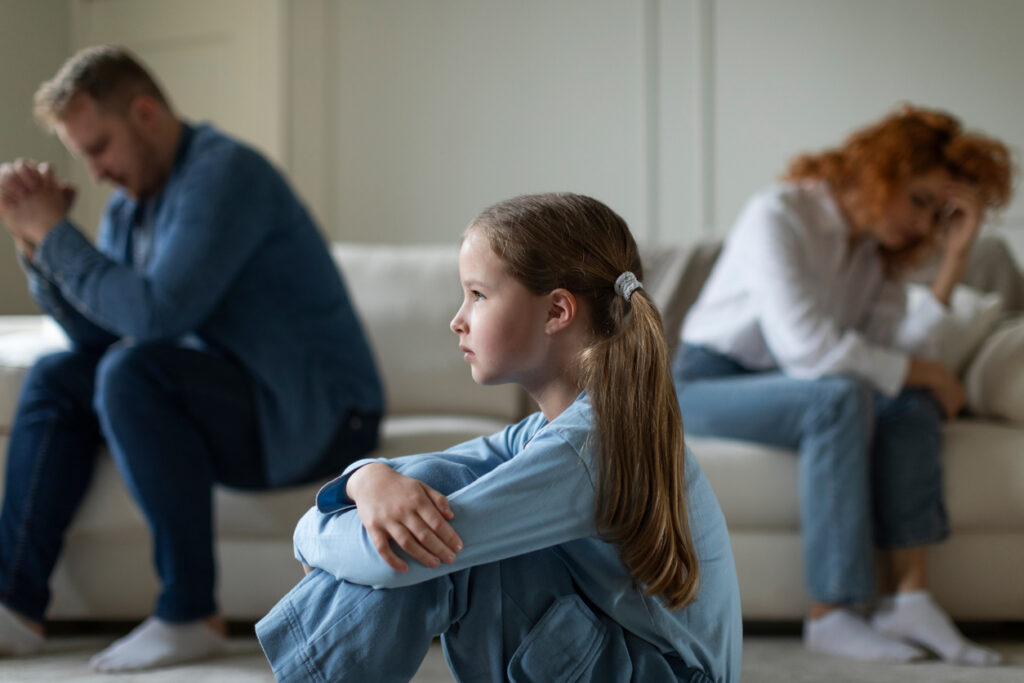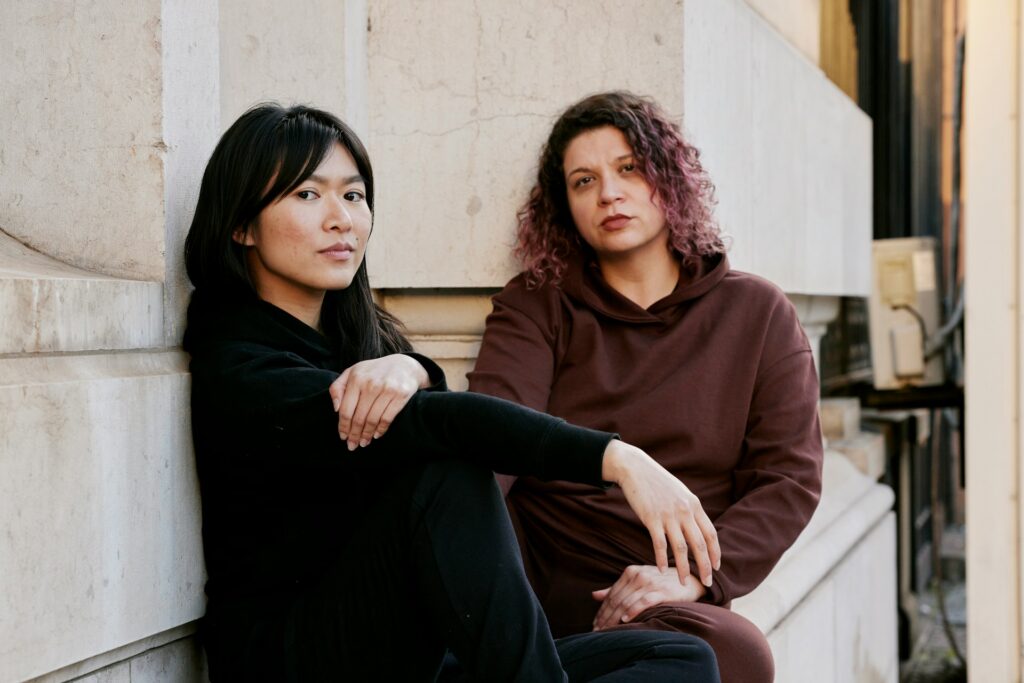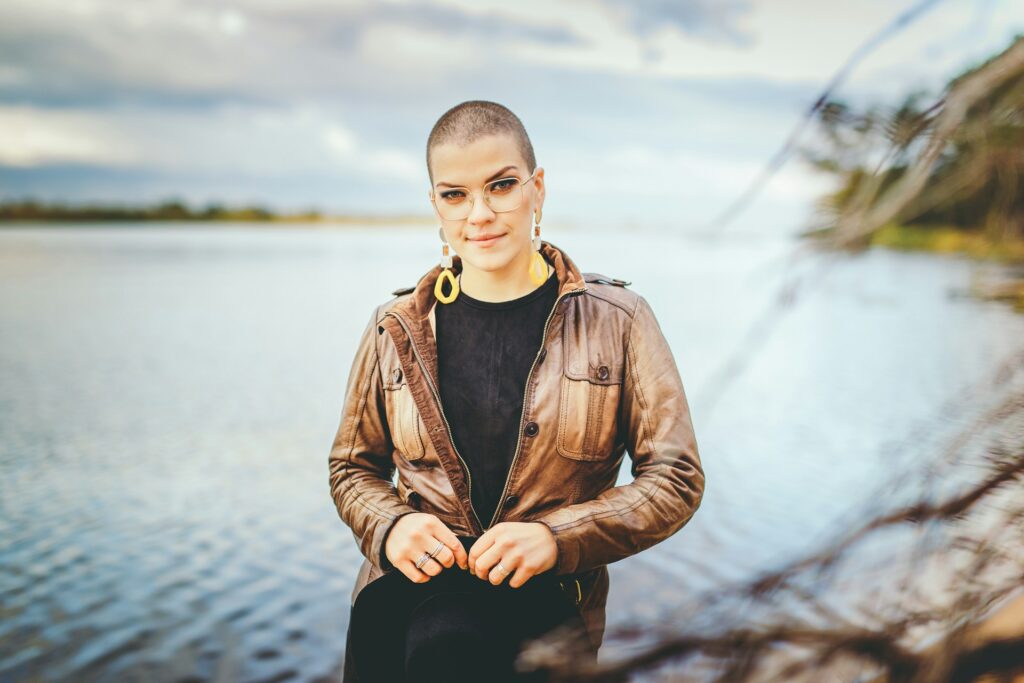When you grow up around chaos, fear, emotional neglect, or constant criticism, it changes how you learn to connect with people.

Even if you didn’t realise it at the time, those early experiences often sneak into your adult relationships in subtle but powerful ways. You might love deeply, want connection, and show up with the best of intentions, but old wounds still shape the way you attach, protect yourself, or interpret the actions of the people you care about. Here’s how unresolved childhood trauma can quietly show up in your love life, even years later.
1. You expect people to leave, even if they’re not going anywhere.

When abandonment was part of your early life, physically or emotionally, you might find it hard to believe anyone will stick around for good. Even in stable relationships, there’s often a quiet part of you scanning for signs they’re pulling away or losing interest. It’s exhausting, and sometimes you end up pulling away first, just to avoid the pain of being left again.
This isn’t about being dramatic or needy. It’s about your brain trying to protect you based on what it’s already lived through. However, expecting someone to leave can become a self-fulfilling cycle if you never learn how to recognise when a relationship is actually safe and solid. That fear can block intimacy before it even has a chance to grow.
2. You mistake intensity for love.

If your childhood was filled with emotional highs and lows, you might associate chaos with connection. Calm, steady love can feel boring or suspicious. You might find yourself drawn to people who keep you guessing—not because you like it, but because it feels familiar. That unpredictability hits the same emotional nerves your early experiences did.
The result is that you end up chasing the drama, thinking it’s passion. But healthy love often looks a lot quieter than we expect. Learning to feel safe in the calm—without needing constant tension—can be one of the hardest but most healing steps toward genuine connection.
3. You struggle to trust, even when there’s no reason not to.

If trust was broken early—by a parent who wasn’t consistent, a caregiver who hurt you, or a home that didn’t feel emotionally safe—it makes sense that trust doesn’t come easily now. Even when someone shows up with care and honesty, part of you might still wait for the mask to drop.
That doesn’t make you paranoid. It just means your nervous system is used to scanning for danger. But that kind of hypervigilance can wear out both you and your partner. Rebuilding trust starts by noticing that fear and reminding yourself that this is a different relationship, with different rules.
4. You apologise for existing.

Growing up in a household where love felt conditional—where you had to earn affection, behave perfectly, or stay quiet to avoid trouble—can lead to feeling like a burden in adult relationships. You might find yourself saying “sorry” constantly, even when you’ve done nothing wrong, just to keep the peace.
As time goes on, it eats away at your self-worth and stops you from feeling like an equal in your relationship. Love shouldn’t require you to shrink yourself. You deserve to take up space, have needs, and still be loved fully. You don’t have to apologise for being human.
5. You fear conflict like it’s the end of the world.

If conflict in your childhood meant screaming, silence, or emotional withdrawal, it’s no wonder you avoid it now. Even small disagreements can feel huge. You might go into panic mode, shut down, or agree to things you don’t really want—just to keep things “okay.”
However, conflict in a healthy relationship isn’t something to fear. It’s just two people trying to understand each other better. Avoiding it doesn’t keep you safe—it keeps you stuck. The more you practise sitting through uncomfortable conversations, the more you learn that you can survive them without losing love.
6. You second-guess your worth in the relationship.

If you didn’t feel fully seen or valued as a child, it can be hard to believe someone could genuinely love you now. You might constantly wonder why they’re with you, what they really see in you, or when they’ll realise you’re not “enough.” That voice in your head rarely rests.
It’s hard to build closeness when you’re always trying to prove your worth. However, love isn’t a prize you win by being perfect. It’s something you participate in. You don’t have to keep earning it every day—it’s okay to just be loved as you are.
7. You push people away when things start to feel good.

It sounds strange, but when love starts to feel real and safe, it can actually trigger old fear. If you’re not used to stability, you might question it or even sabotage it. Suddenly, your brain starts inventing problems, overthinking every detail, or finding reasons to back away.
This isn’t because you don’t want love—it’s because deep down, you’re afraid it won’t last. Letting someone in means risking the kind of hurt you’ve worked so hard to avoid. The problem is, keeping everyone at a distance doesn’t protect you. It just leaves you lonely.
8. You replay old roles without realising it.

Sometimes, childhood roles follow us into adult relationships. If you were the caretaker, the fixer, the quiet one, or the peacekeeper, you might fall back into those same patterns with your partner. You start managing their emotions, anticipating their needs, and ignoring your own.
This can feel familiar, even comforting, but it’s not sustainable. A relationship built on one person carrying the weight isn’t fair to either of you. Healing means learning to show up as a full person, not just the role you played to survive.
9. You feel responsible for your partner’s emotions.

When you grow up walking on eggshells—constantly trying to keep a parent calm or avoid their anger—it teaches you that other people’s feelings are somehow your fault. That belief often follows you into love. You feel guilty when your partner is upset, even if it has nothing to do with you.
This can lead to overfunctioning, burnout, or losing your sense of self. But emotional responsibility works both ways. You’re allowed to support your partner without absorbing every feeling they have. You’re not the emotional sponge in the relationship—you’re a person with your own needs too.
10. You don’t know how to ask for your needs to be met.

If expressing needs led to rejection, ridicule, or neglect growing up, you may have learned it was safer to stay quiet. As an adult, that silence sticks. You might struggle to speak up when something feels off, or convince yourself that your needs are “too much.”
But love can’t grow when only one person’s needs are being met. Reclaiming your voice doesn’t mean being demanding—it means being honest. The right person won’t be overwhelmed by what you need. They’ll be grateful you trusted them enough to say it out loud.
11. You feel like you’re always performing.

When your early life taught you that love is conditional—based on how you behave, what you look like, or what you achieve—it can be hard to let go of that performance. You may feel like you have to stay upbeat, desirable, or impressive to keep your partner interested.
Of course, love built on performance is exhausting. You deserve to be seen in your quieter moments too—the messy, emotional, or uncertain ones. Real love doesn’t demand a show. It makes room for your full self, not just the highlight reel.
12. You confuse attention with care.

Sometimes, when you’ve been starved for affection, any attention feels like a lifeline, even if it’s inconsistent or manipulative. You might hang on to someone who gives you crumbs of affection, just because it’s more than you’re used to. But care isn’t just about being noticed—it’s about being nurtured.
Learning the difference means tuning in to how someone treats you consistently, not just during the highs. You don’t have to settle for love that only shows up when it’s convenient. You’re allowed to want something steady, warm, and real.
13. You overexplain to avoid being misunderstood.

If your childhood involved being blamed for things you didn’t do or constantly having to explain yourself, you might carry that habit into adulthood. In relationships, it can look like long texts, rambling justifications, or constant clarifying, just to make sure you’re not misunderstood or rejected.
This often comes from a fear of being “too much” or getting it wrong. However, healthy love doesn’t require you to prove yourself constantly. You’re allowed to speak simply, to say no, to express a boundary without writing an essay. The people who love you will get it, and even if they don’t, it’s not always your job to make them.
14. You ignore red flags because you’re used to dysfunction.

When chaos is your baseline, it’s hard to spot when something’s actually unhealthy. You might brush off controlling behaviour, constant criticism, or emotional distance because it just feels normal. Your tolerance for pain becomes so high that you stop realising you’re being hurt.
This isn’t your fault—it’s what your nervous system learned to survive. But healing means starting to ask new questions. Does this feel good? Does this feel safe? Would I want someone I love in this situation? You don’t have to repeat old patterns just because they’re familiar.
15. You keep waiting to be “ready” for love.

There’s this myth that you have to be completely healed before you’re allowed to be in a relationship. However, healing doesn’t happen in isolation—it often happens in connection. You’re allowed to have wounds and still be worthy of love. You don’t need to have it all figured out.
The key is being honest about where you’re at, taking responsibility for your triggers, and choosing partners who are emotionally safe. Love doesn’t require perfection. It just asks for presence, honesty, and a willingness to grow together.
16. You’re more capable of love than you think.

Trauma might shape how you love, but it doesn’t take away your ability to love deeply, fiercely, and honestly. You might have to unlearn some things, feel through the hard parts, and be patient with your own healing, but none of that means you’re broken.
Your heart knows how to connect. It’s always known. And the fact that you’re reading this, thinking about how to do love differently, is already proof that you care. That kind of self-awareness and softness? It’s exactly what real love needs.


